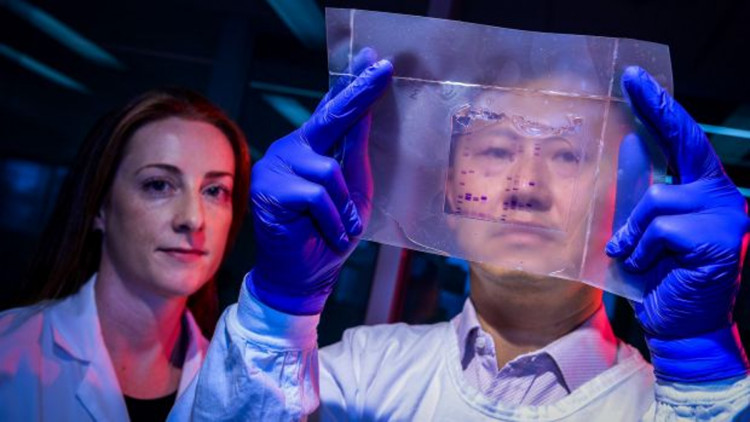Discovering 'secret weapon' in female reproductive organs can fight HIV
The human body can defend itself against HIV, scientists have discovered the miracle, and the exploitation of this weapon will change the way we treat and prevent "death" viruses.
The weapon is a protein , discovered in women's reproductive organs, scientists working at the Hudson Medical Research Institute and Deakin University, Australia discovered proteins that can prevent HIV replication, control it.
They say this finding is interesting because the clever multilateral approach helps proteins in the body fight viruses. At least three "barriers" will prevent the "step" of the virus.

Australian scientists in the laboratory.(Photo: SMH).
Cells of healthy people exposed to HIV without this protein will soon be invaded so that the muscle becomes a virus "factory" , allowing it to multiply. When the reserves are exhausted, they will die within 2 days.
However, there is another story for human body cells with the newly discovered protein. Cells that protect proteins make it difficult for viruses to try to invade.
The protein system is perfectly positioned to prevent viruses from moving into the center. If the first two rooms are penetrated, the back rooms will continue to "fight". Protein will impotence the virus after it is copied.
"The most interesting thing for us is that this protein is in nature, and its multi-layer defense system will help us create new treatments for HIV," Johnson Mak, Ph.D. Deakin said.
The findings published in the Journal of Immunology and Cytology also have implications to limit the spread of various infectious diseases, including Zika virus.
Niamh Mangan, a chemical immunologist, says proteins will promote a simple way to protect women from HIV infection. She said the study was further needed to verify whether it had a similar protective effect on men.
"Clinical studies show that the protein in the reproductive tract in men is also good, but we need more research , " she said.
Known as interferon epsilon , signaling proteins will always grow healthy and disrupt HIV by activating a multi-layer immune system.
"This protein is very intelligent because it disrupts the life cycle of HIV at different stages," Dr. Mangan explained.
The protein was discovered in 2004 by a laboratory named Professor Paul Hertzog of the Hudson Institute of Science. It was not until 2014 that scientists made it a synthetic protein and established a reproductive tract defense role.
Dr. Mangan said the level at which the expressed protein is determined by the hormones estrogen and progesterone.
- Symbol of female reproductive organs on the ceiling of Vatican cathedral
- The man has the uterus, ovaries
- Errors in the famous picture of Leonardo da Vinci
- The reproductive organ of moss is the inspiration designed for pipettes
- Want children, just a little skin!
- Secret female contraceptive weapons of female dolphins
- 7 human organs can be removed and still survive
- Comedy female soldier in ancient tomb 1,000 years
- Large horns cause small organs to mate
- Reversing strange insects with reproductive organs
- You already know about men learning?
- Eating organs easily accumulates toxins but following these 3 ways will not be toxic
 Green tea cleans teeth better than mouthwash?
Green tea cleans teeth better than mouthwash? Death kiss: This is why you should not let anyone kiss your baby's lips
Death kiss: This is why you should not let anyone kiss your baby's lips What is salmonellosis?
What is salmonellosis? Caution should be exercised when using aloe vera through eating and drinking
Caution should be exercised when using aloe vera through eating and drinking